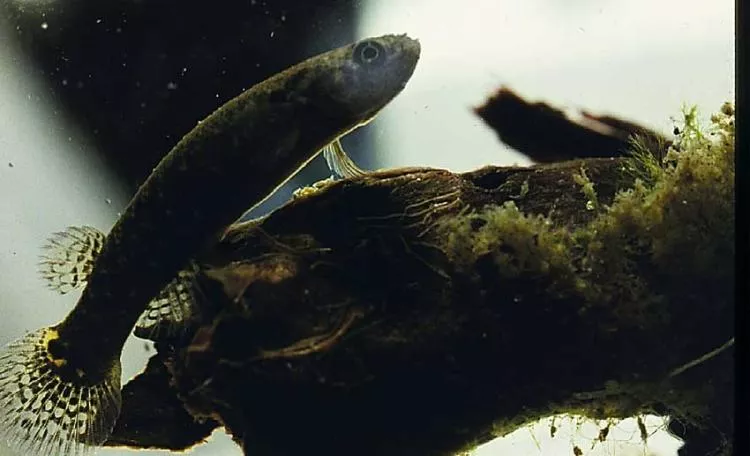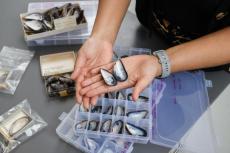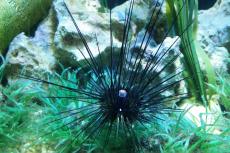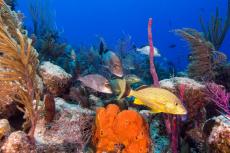The fish that lives in trees and breeds without a mate
A tropical fish that lives in mangrove swamps across the Americas can survive out of water for months at a time. It is also the only vertebrate known to naturally self-fertilize.
The mangrove rivulus, also known as the mangrove killifish, is native to the Americas and is about five centimetres (two inches) long.
The fish has long been studied for its many unique features. It's the only vertebrate known to naturally self-fertilize, for example. In some populations, it can become a hermaphrodite, developing both male and female parts simultaneously, to produce clones of itself.
Along with the ability to breed without a mate, scientists have recently discovered that it can spend up to sixty-six consecutive days out of the water, which it typically spends inside fallen logs, breathing air through its skin.
When their habitat dries up, they live on the land in logs, said Scott Taylor, a researcher at the Brevard County Environmentally Endangered Lands Program in central Florida.
It enters burrows inside the trees created by insects where it relaxes its territorial, aggressive behaviour. During this time its gills alter so that it can retain water and nutrients, while nitrogen waste is excreted through the skin. The change is reversed once they re-enter the water.
Clues to evolution
Some other fish can survive briefly out of water. The walking catfish found in Southeast Asia can wriggle over land for hours at a time, while lungfish found in Australia, Africa and South America can survive out of the water, but only in a dormant state.
No other known fish can be out of the water as long as the Mangrove Rivulus and remain active, according to Patricia Wright, a biologist at Canada's University of Guelph.
"They can survive for weeks without really dropping their metabolic rate. They remain relatively responsive and active for weeks in air," she said.
The fish may hold clues to how animals evolved over time.
- Log in to post comments

























